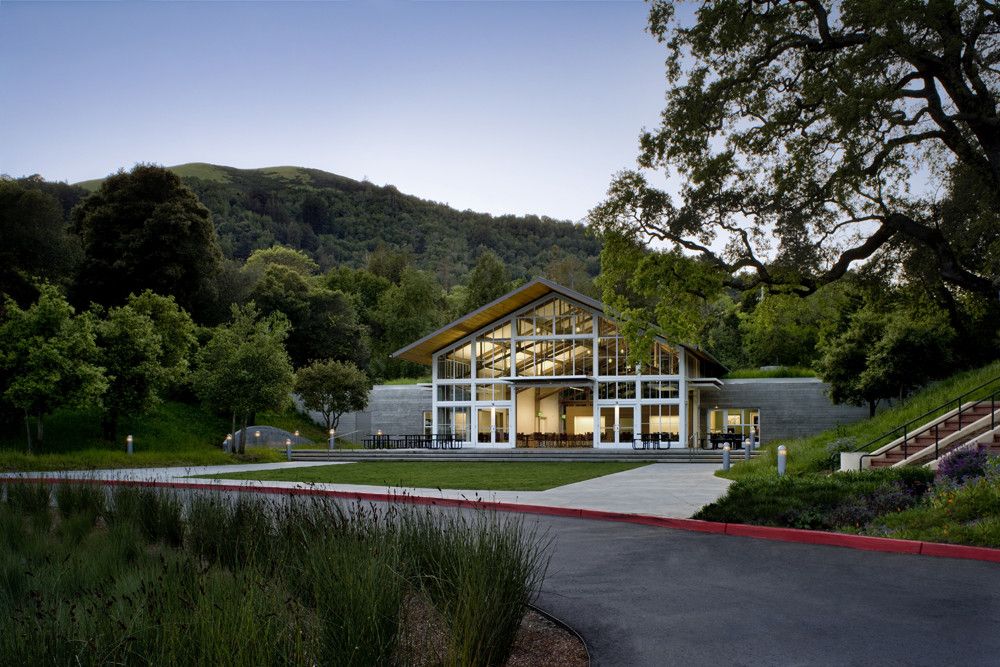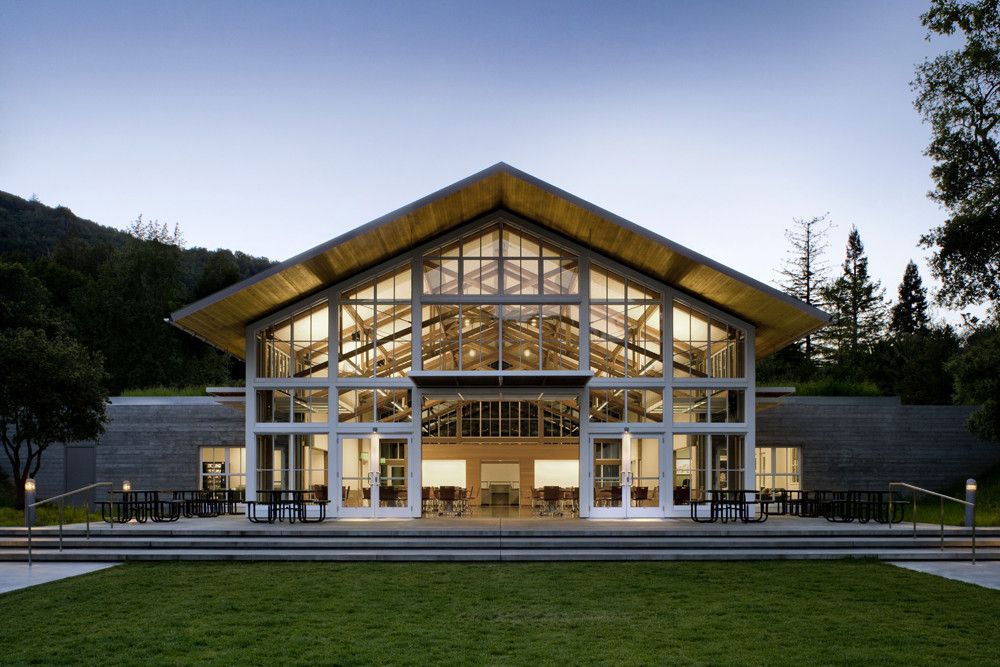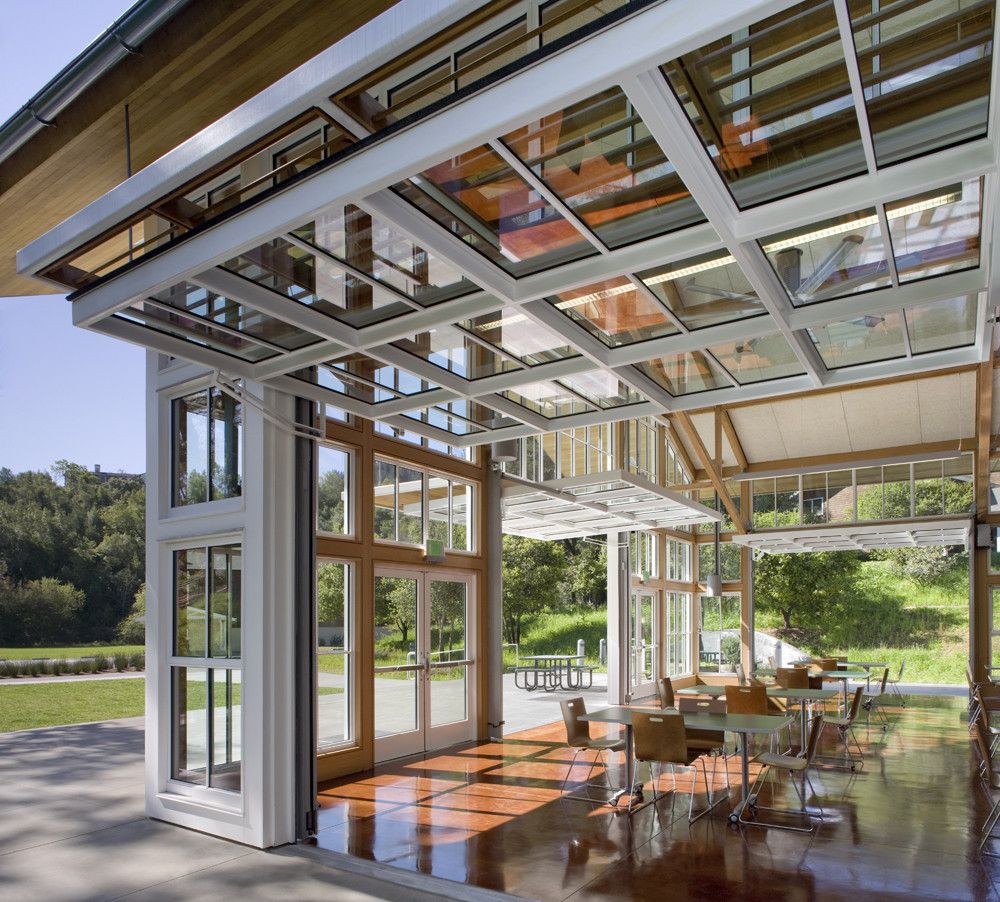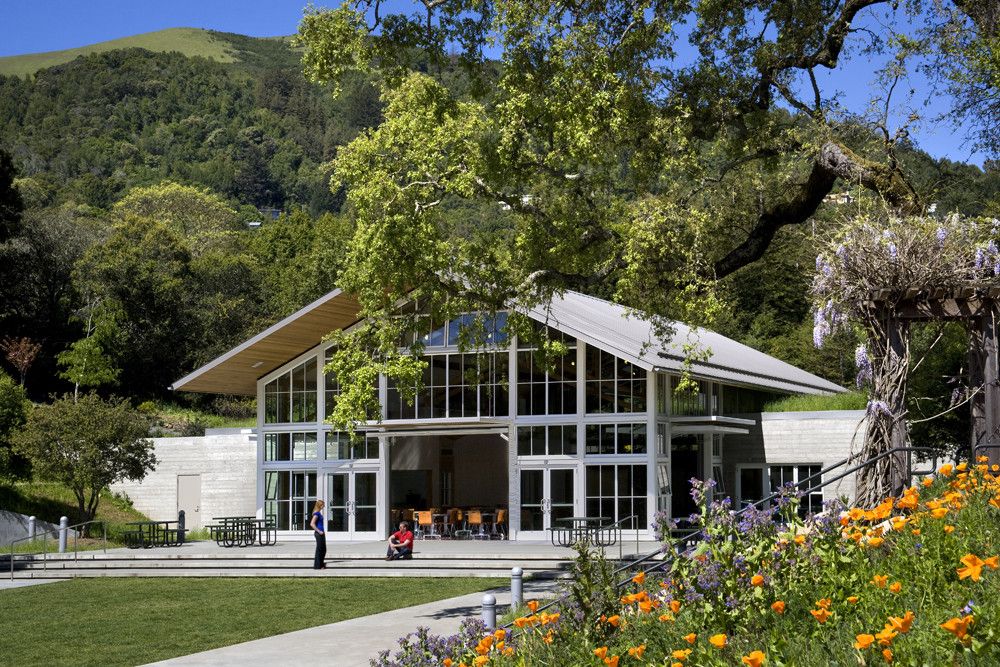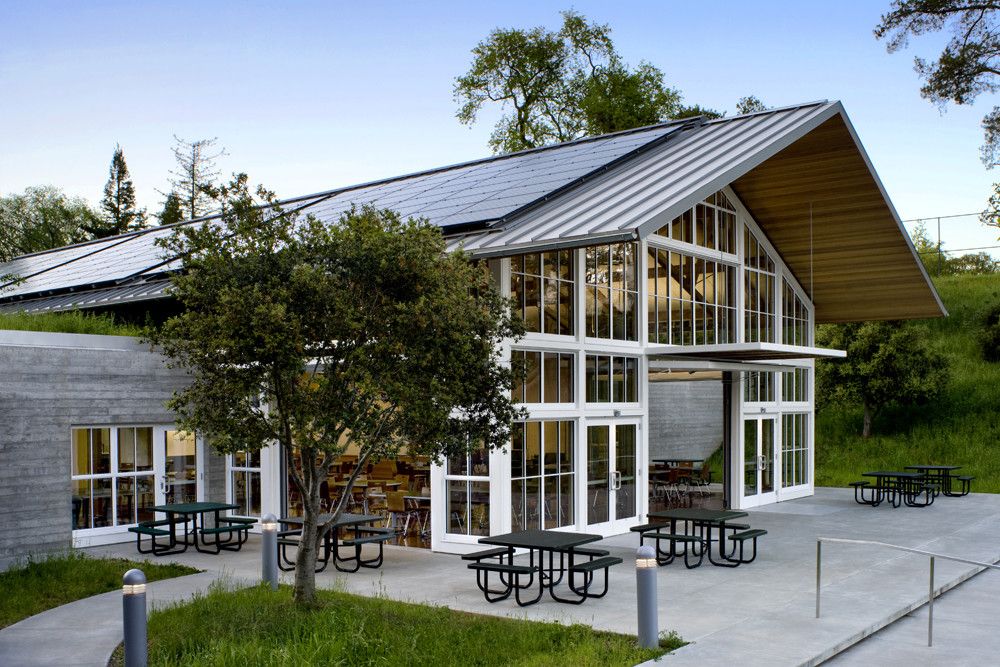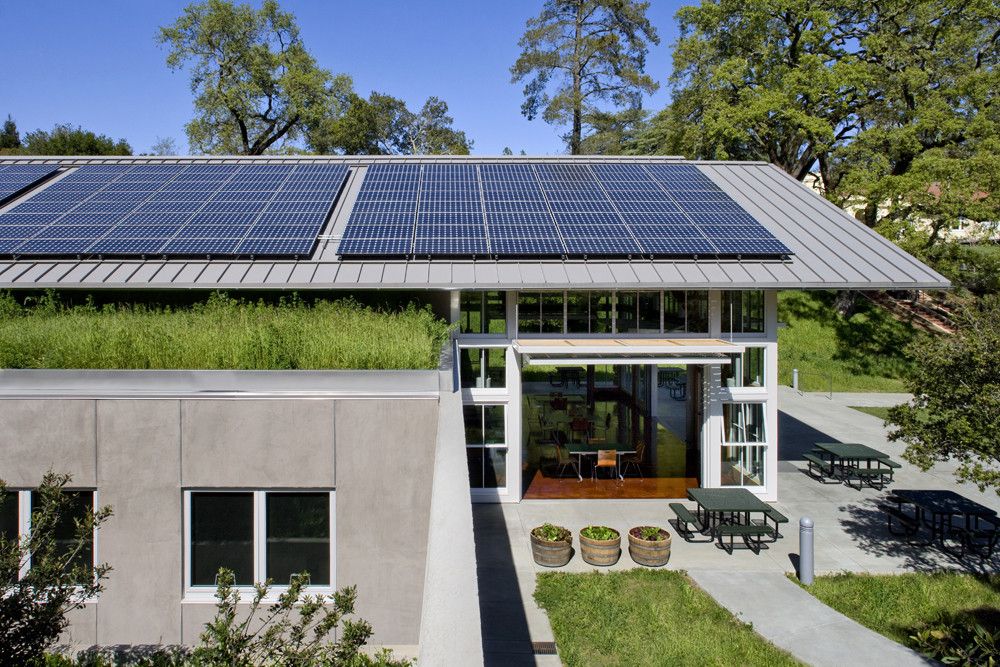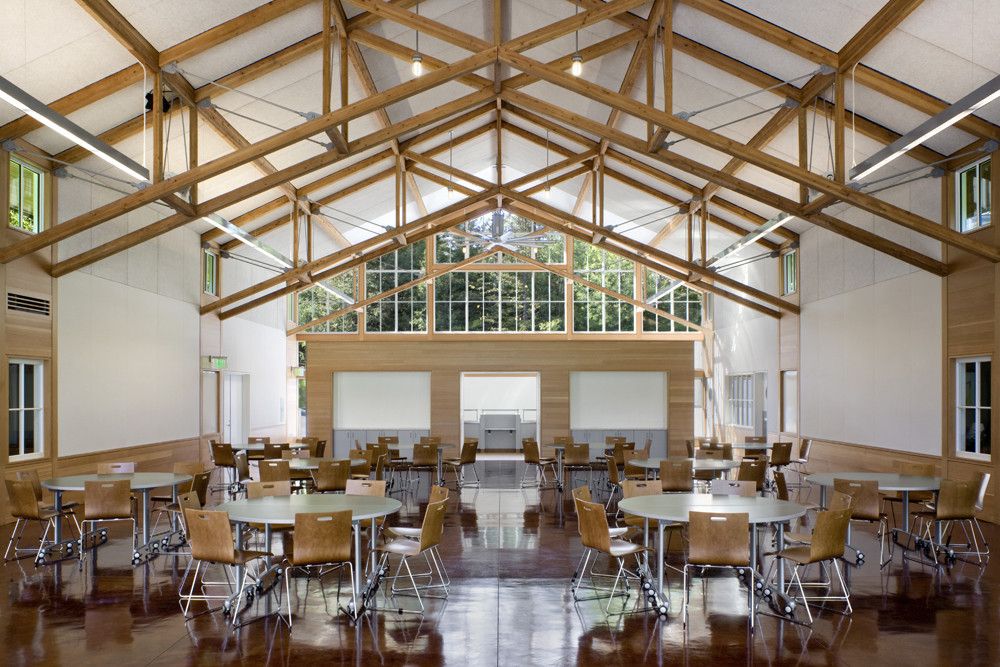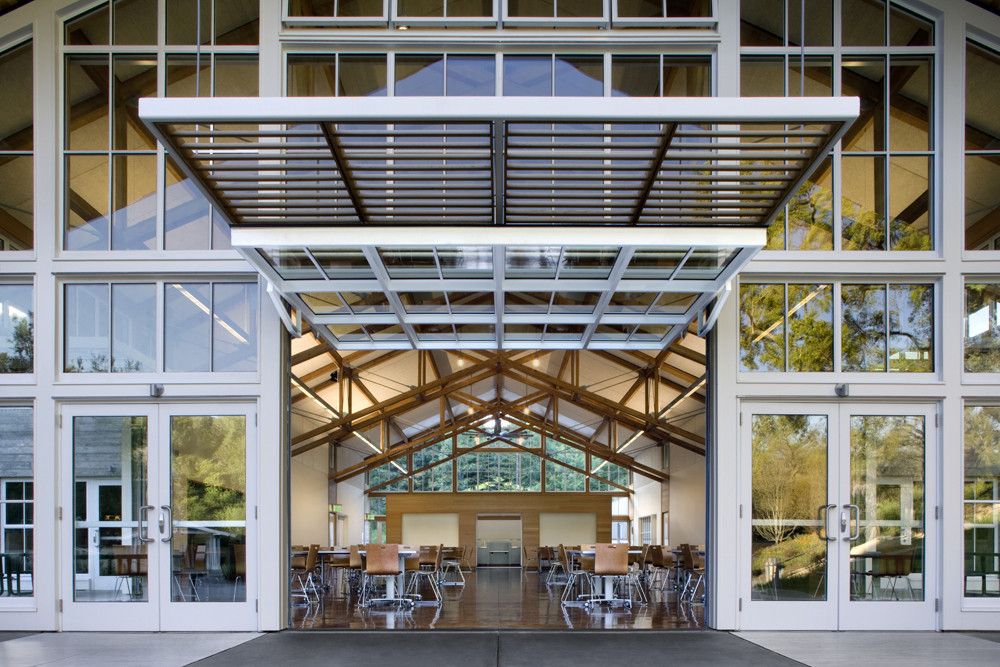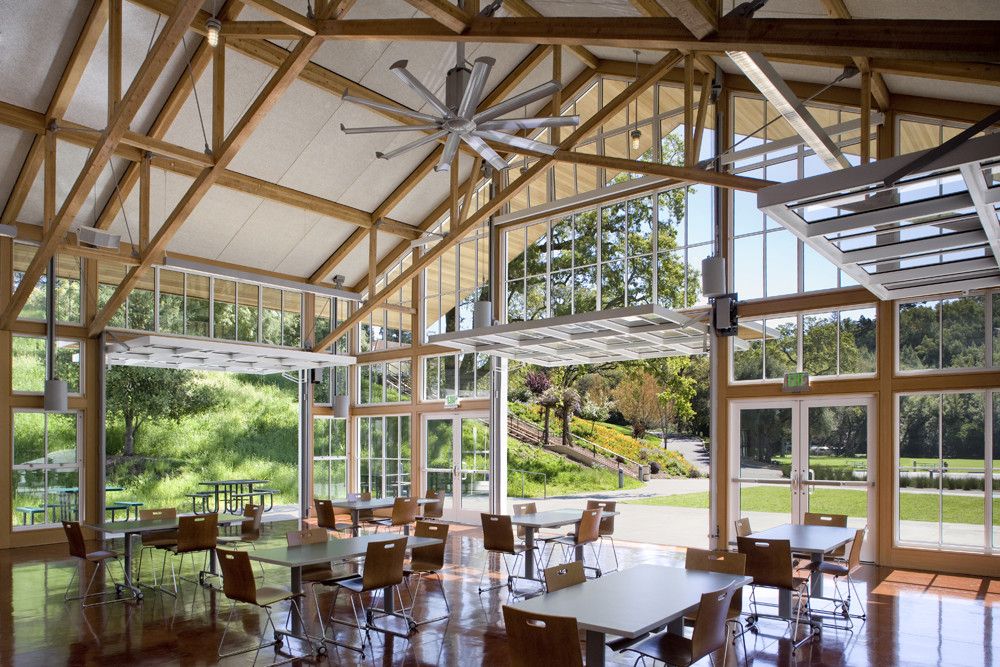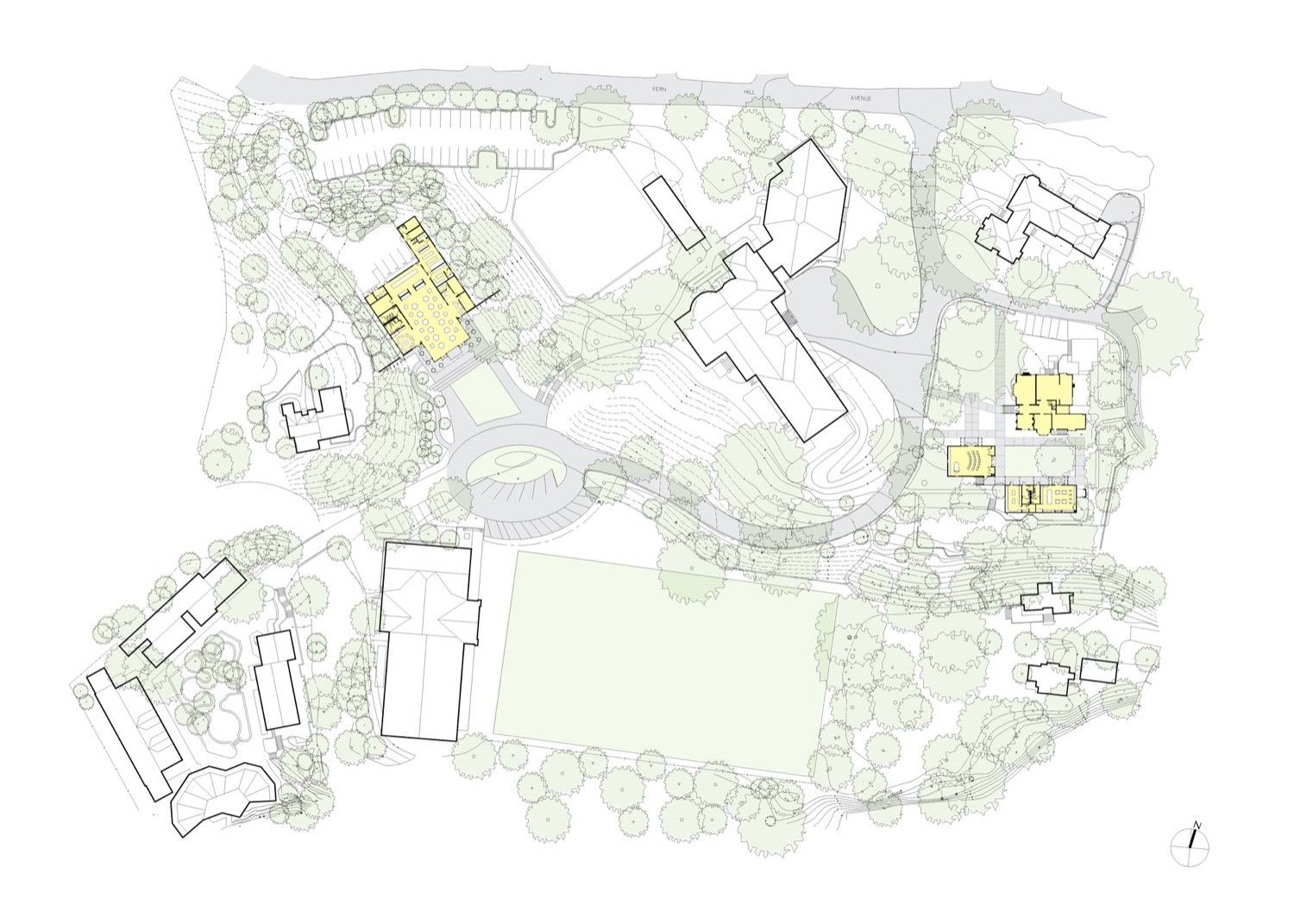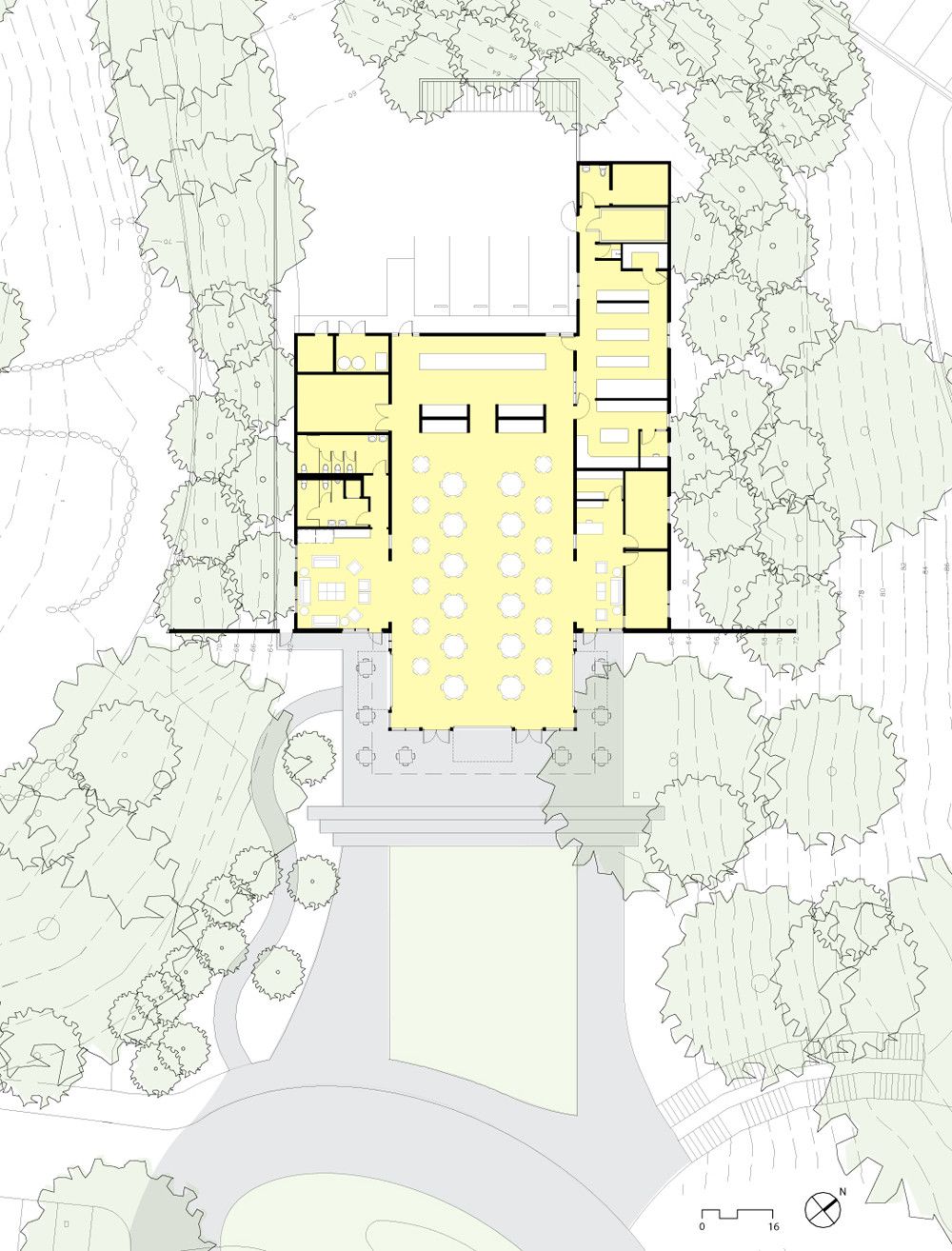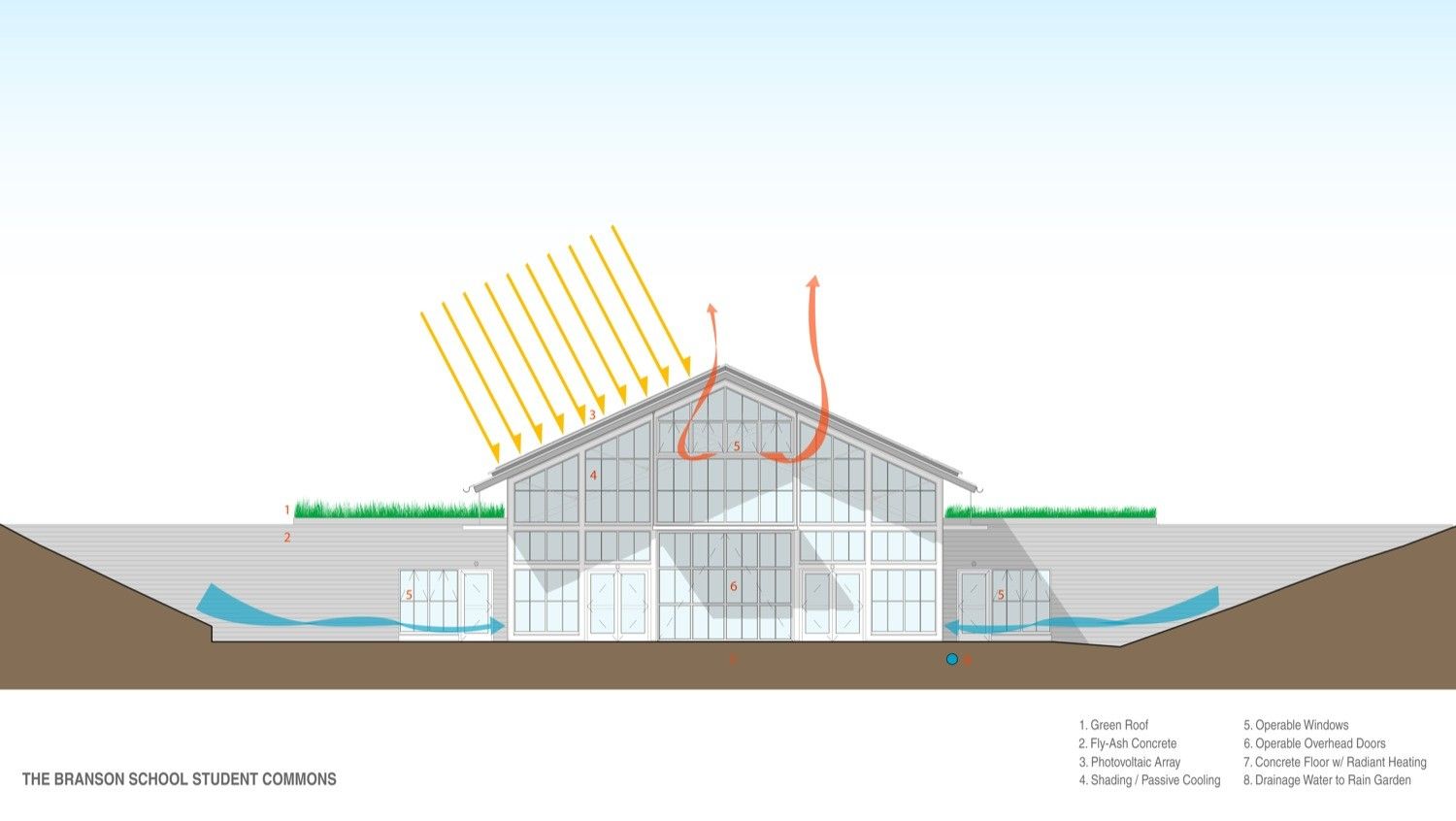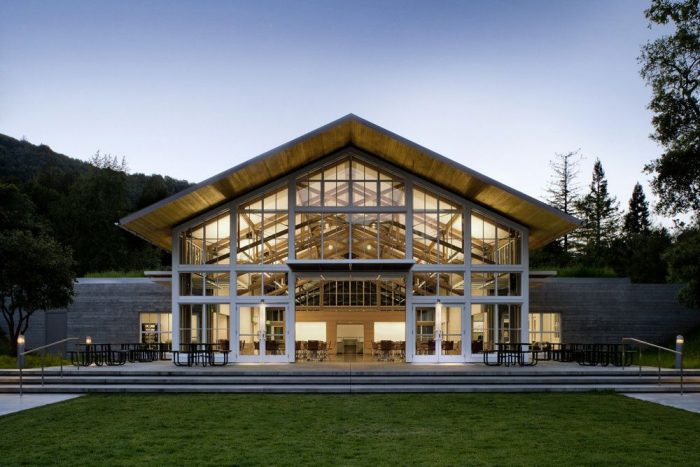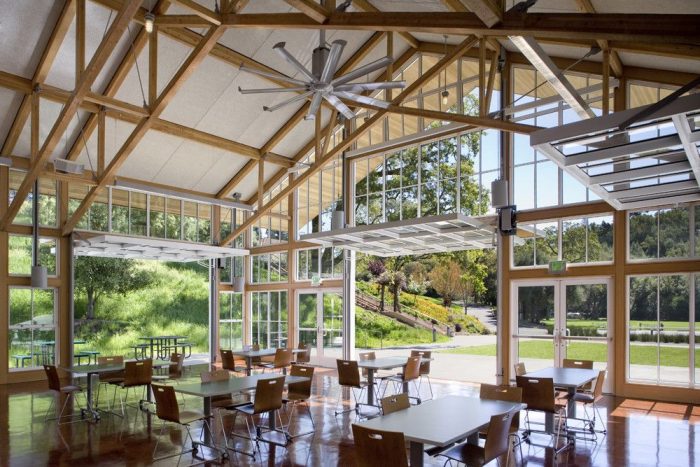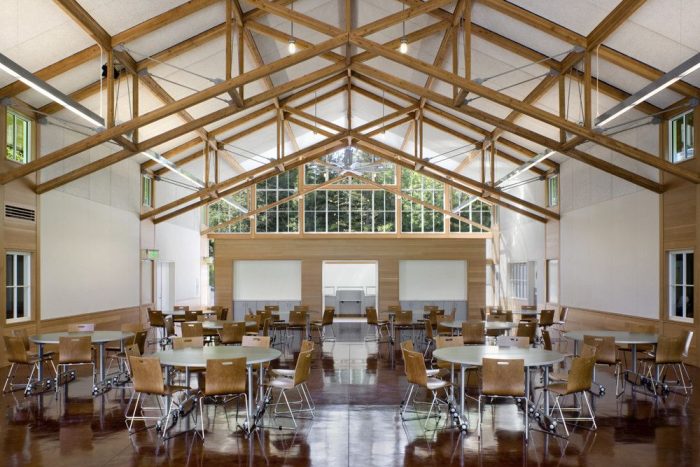Turnbull Griffin Haesloop designed The Branson School which is an independent high school that occupies seventeen acres of hilly terrain in a residential community just north of San Francisco. The new 7,550sf Student Commons building is located in a narrow glen in the center of the campus, along with the pedestrian path between the upper and lower campuses. By providing spaces for gathering and socializing throughout the day, the student center serves as the heart of campus activity. Sited to take advantage of the sunny southern exposure, the new building features large overhead doors that open onto a generous plaza for dining, meeting and outdoor learning. The central gable and large window wall front onto an inviting terrace and lawn while the flanking support wings, sheltered under green roofs, connect to the adjacent hillsides with board-form concrete walls.
The Branson School is currently seeking LEED Platinum certification for multiple campus buildings including the Student Commons. This building highlights sustainable strategies and that are integrated into school curriculum to help educate the students about the potential of sustainable design. Energy use is minimized by the Student Center—an array of 136 photovoltaic panels will generate 31 kilowatts or approximately 60% of the energy needed to power the building. The building is passively cooled through ceiling fans and operable clerestory windows while overhangs, sunshades, Solarban-60 low E-squared double-glazed windows minimize heat gain. Thermal mass in the concrete floors and a 2500sf living roof moderate temperature swings in the building.
Branson School is heated with closed-loop hydronic radiant flooring. Ample daylighting is provided for interior spaces, reducing the need for electric lighting. When necessary, high-efficiency interior dimming fixtures with daylight sensors provide supplemental light. Indoor air quality is prioritized through the use of low-emitting and non-toxic materials as well as natural ventilation strategies, which were simulated and tested through Computer Fluid Design analysis. The living roof, rain gardens, pervious surfaces and underground retention systems reduce storm-water runoff. Potable water use is minimized through native drought-tolerant landscaping, ultra-low flow fixtures, and waterless urinals. Additionally, over 90% of construction waste was recycled and construction materials include recycled or rapidly-renewable products, cement with 30% fly ash, and FSC Certified wood.
Project Info:
Architects: Turnbull Griffin Haesloop
Location: Ross, CA, USA
Project Team: Mary Griffin, FAIA, Eric Haesloop, FAIA, John Kleman, Georgianna Salz, Evan Makiewicz, Tory Wolcott, Juliet Hsu
Landscape Architect: Christian Lemon, Sasaki
Engineer: Mike Forbes, Fratessa Forbes Wong
Contractor: Herrero Construction
Energy/Leed: Loisos and Ubbelohde
Area: 7550.0 ft2
Project Year: 2009
Photographs: David Wakely
Manufacturers: AEP Span, Big Ass Fans, Lutron, Warmboard, Scofield, Lochinvar, Plyboo, Renlita Doors, Icynene, Hydrotech Garden Roofs
Project Name: Branson School
